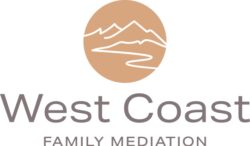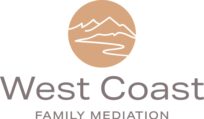This July 4th while you’re enjoying a day off, maybe heading to the beach if you’re in California or enjoying some delicious food and time off with family and friends, another thing to celebrate is freedom from conflict. Independence and freedom are part of what we think about when we think about July 4th since its Independence Day but it’s not just about our country’s freedom, it can also be about celebrating freedom from the things in our lives that don’t serve us; and conflict is one of those.
Mediation: Journeying Through Conflict
A conflict is a struggle and a clash of interest, opinion, or even principles. As an attorney and mediator offering Bay Area mediation services, conflict is at the center of what I do with clients. Being a family law mediator means that conflict touches my clients in so many personal ways and it can cause so much stress and anxiety in our lives.
From my perspective, conflict is normal, we all have it in our lives, but the way we deal with it and how we communicate with each other about it affects our ability to move forward. I truly believe that no matter how difficult the issues are you are facing there are ways to solve them without having to go to court.
So, to me celebrating freedom from conflict isn’t about not having conflict at all, but about finding ways to constructively deal with conflict. When I’m working with clients whether it’s for a divorce mediation, family mediation or even premarital mediation my goal is to assist them in resolving their conflicts and find ways to deal with the inevitable conflict in the futures. As a mediator I help the parties by facilitating communication, guiding their discussion, and finding compromises (often referred to as the middle ground, but that’s not really what it is, and that’s a topic for another article) so that they can both walk away feeling better than when they first came to me.
How Mediation Can Help
Providing Bay Area mediation services means that some of the strategies I teach clients for dealing with conflict constructively are to engage in open and honest communication with the other party; something that on the surface may sound easy but can be difficult and in mediation I strive to set them up for constructive communication on their own in the future. Now constructive communication means that you’re able to clearly express what your concerns, needs and perspectives are while actively listening to the other person’s point of view and trying to seek understanding for what it is that they are truly looking for.
Trust me, I know this isn’t easy and although I teach it to clients it can still be a struggle in my own personal life (just ask my Husband). Practicing active listening, paying attention to the other person’s words, body language and emotions can show the other person that you are listening, you respect them, and you truly want to hear what they have to say. Showing the other person that you are actively listening by maintaining eye contact, nodding, summarizing their points and repeating back to them that you have understood them to say are all ways for the other person to feel respected and establish a foundation of trust.
Person – Not “Problem”
One of the main things I try and teach my clients, and in fact it is part of our guidelines for mediation is to focus on the problem and not the person.
By avoiding personal attacks or blame and focusing on addressing the issue at hand it’s much easier to find a solution that works for both parties. Oftentimes in divorce mediation this may mean looking at the conflict as a business transaction so you’re not thinking of all the ways that person has hurt you in the past, everything you want to blame them for and attacking them instead of trying to solve the problem at hand.
Another tenet of our guidelines for mediation is I tell my clients to use “I” statements instead of “you” statements when expressing their thoughts and feelings. This means that you’re talking about what it is and how you feel, “I feel hurt when this happens” as opposed to blaming the other person for what they’ve done, “You always make me feel hurt”. Using “I” statements allows you to emphasize your personal experience and avoid blaming the other person. Also, when you use “I” statements the other person can’t say no I didn’t do that because you get to feel how you feel even if they disagree with whether they’ve done that to you.
Calm & Collected Decisions
In providing Bay Area mediation services, I always tell my clients that if you’re in the middle of mediation and your emotions are running high or you feel that you need some time to think they can always ask for a break. This can translate into any conflict that you’re having no matter where it is.
By taking a step away from the situation temporarily it allows both parties to calm down, collect their thoughts and refocus on approaching the conflict with a clear mind. This technique can work, even if you’re not in mediation and you’re just at home arguing with a sibling or your spouse. By taking a break (whether it’s a few minutes, an hour or even a day) you are often able to come back to the conflict with a brand-new perspective that allows you both to move forward.
Lastly as I said above, celebrating freedom from conflict doesn’t mean you will have zero conflict in your life (and let’s be honest wouldn’t that be a bit boring anyways if everyone just agreed and got along perfectly?), but that you will know how to constructively deal with that conflict moving forward.
Learning from each conflict that you have can offer valuable insights to you about yourself, the other person and the situation and will always provide opportunities for growth. So, if you can remember, each time you have conflict remember to reflect on the conflict and consider what you can learn from that experience and what you can take into future experiences.
California Bay Area Mediation Services
If you are looking for Bay Area mediation services to help you with your current conflict and to find ways to have freedom from conflict in the future, contact West Coast Family Mediation to see how mediation can help with your unique situation.
by: Amanda Singer


